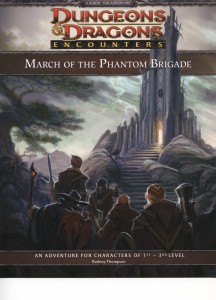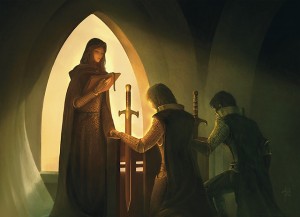A controversial stance on the Avenger class, an in-depth look at the Warforged, as well as our unique take on divination, summoning, and trust issues in D&D all contributed to our best month yet here at Dungeon’s Master. These were just a few of the many topics we covered throughout March.
Although we generally run our Month in Review on the 1st, we decided to wait given that Friday was April Fool’s Day. Hopefully you enjoyed our April Fools Day article, Magical Items That Aren’t Magical. Now it’s on to the Month in Review where we recap all of the great articles we ran over the past month and give you a chance to get caught up on anything you might have missed.
We’d like to again thank everyone who visited Dungeon’s Master during March and we hope that you keep visiting us in the months to come. We welcome your feedback and look forward to reading your comments throughout April.




